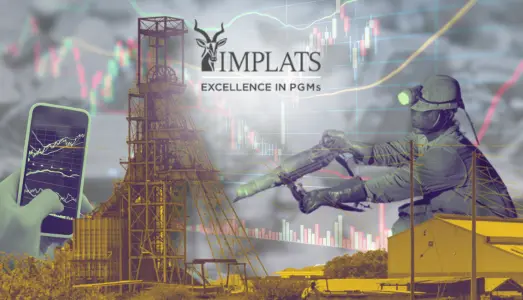Impala Platinum, also known as Impala, is one of the biggest mining companies in South Africa and the world. Despite intense geopolitical and industry-wide setbacks, analysts have praised the Impala Platinum share price history and the company’s strong revenue model.
Impala suffered a –2.5% in South African trading after reporting a full-year loss of R17.3 billion for the year ended June 2024 – a significant shift from the reported profit of R4.9 billion last year.
For the upcoming fiscal year 2025, Impala will focus on controlling costs through labor restructuring, deferring projects, and reducing excess inventory. They are hoping to increase unit costs and maximize profitability and returns.
The Impala Platinum Share Price (JSE) Data
As of this writing, Impala’ market capitalization is USD 3.794 billion, and its dividend yield is 7.87%. The current Earnings Per Share (ttm) is –1.08%.
However, share prices are relatively low, at USD 3.99 – 4.13. Depending on their risk preferences, some investors may consider “buying the dip.”
Furthermore, Impala stocks have likely struck bottom, providing a positive opportunity for value-seeking investors.
Refer to the table below for Impala Platinum share price data.
| Market capitalization | USD 3.794 B |
| Price range | USD 3.99 – 4.13 |
| Dividend Yield | 7.87% |
| Shares outstanding | 946.23 M |
| EPS-TTM | -1.08 |
Summarized Analysis of Impala Platinum Shares FY 2024
Impala reported noteworthy declines in both revenue and profit in its full-year results. This downturn is expected, with a weakened US dollar and a sharp drop in platinum-group metals (PGM) prices & demand.
Declines in revenue and profit
Impala reported an 87% full-year profit plunge, revealing a dramatic downturn in its top and bottom-line figures.
The second largest platinum provider reported a full-year revenue decrease of 19% to USD 4.83 billion (ZAR 86.4 B), and headline earnings fell to (ZAR 2.41 B) from (ZAR 18.8 B), citing poor PGM pricing as the main cause.
Palladium, for instance, fell by 37% after surging to more than $3,400 an ounce following Russia’s invasion of Ukraine. Meanwhile, Rhodium, which soared to $30,000 an ounce in 2021, is now trading at only $4,000 an ounce.
Since then, demand for PGMs have decreased because Russia is selling overstock to international economies at a lower price, as well as the growing market for electronic vehicles, which no longer need platinum-group catalysts for their engines.
Impala has also reported USD 1.1 B (ZAR 19.8 B) in impairments, at their flagship Rustenburg operations in South Africa.
Solid production despite setbacks
Impala production is highlighted as a “bright spot” in FY2024 results.
Headline figures show a 13% increase in production to 3.65 million ounces (around 20 African elephants!), and refined unit costs per ounce increased by 5% to $1770. This is heavily attributed to the recent acquisition of the Bafokeng mine, bolstering 6E output by 13%.
Other factors that impacted production rates include an improved electricity supply. To curb the unpredictability of the power supply, a 100 MW solar power plant has started development for Impala Rustenburg, the group’s biggest electricity consumer.
Stock performance
After metal prices fell by a third from their peak, Impala shares also experienced a 3% downfall.
Group CEO Muller admits that the decline in palladium and rhodium prices was expected; however, the speed of the decline surprised the company and its stockholders.
For FY 2024, Impala did not declare a final dividend due to the challenging market conditions.

Forecast and Guidance
Impala outlines key factors that will affect the future of Impala shares: PGM demand, global inflation, and the impact of geopolitical tensions on industrial policy and investor caution.
The group is well-aware that a deficit in the metal industry will remain until 2025. However, the company is confident that strategic investments and efficient operations will stabilize stock performance.
Sustained operating momentum
As mentioned, Impala’s production increased by 13% despite the decline in profit. Impala expects to maintain similar results in FY 2025.
Impala analysts also expect a rise in unit costs due to inflation and are confident in its ability to generate cash flow. The group will focus on safety performance and restructuring capital investments to maximize returns for the upcoming fiscal year.
Group 6E refined and saleable production is expected to be between 3.45 million and 3.65 million ounces.
Proactive solutions
Impala CEO Nico Muller is aware of the risks shaping the company’s structural operations. Likewise, Impala must make quick decisions in anticipation of market changes.
New Impala canceled projects in South Africa and Zimbabwe this year, as Muller admits that the metals industry struggles with a price slump.
Muller adds that no shareholder or company will see an attractive return for new assets and that halting projects was strategic to maximize returns.
While electric vehicles are driving lower PGM demand, Impala is still likely to benefit from it through green hydrogen. As early as 2016, Impala implemented a novel technology for a hydrogen-powered forklift and a hydrogen refueling station.
Cost-effective adjustments
Impala is well positioned for FY 2025, especially with their aggressive cost restructuring.
To improve profitability, the company implemented 10% salary cuts across SA operations and scrapped management salary increases.
Impala expects to deliver similar volumes for the next fiscal year, reduce excess inventory build-up, and increase unit costs by a maximum of 5%.
About Impala Platinum Holdings Ltd
Impala Platinum Holdings Ltd. was founded in 1966 and is the second largest platinum producer in the world. The company is structured into six main operations: Impala, Zimplats, Marula, Mimosa, Two Rivers, and the recently acquired Bafokeng.
Its most significant mine is at Rustenburg, which accounts for over a 3rd of the company’s PGM output.
It is traded as IMP at the Johannesburg Stock Exchange (JSE:IMP) and OS2J at the London Stock Exchange (LSE:OS2J) and currently operates under the leadership of CEO Nico Muller.
The company also sponsors the Impala Platinum bursary for South African scholars of accounting, engineering, chemistry, mining surveys, and other related fields.
Its current headquarters is located at 2 Fricker Road, Illovo, Johannesburg, South Africa, and its contact details are +27 (11) 731 9000.

















